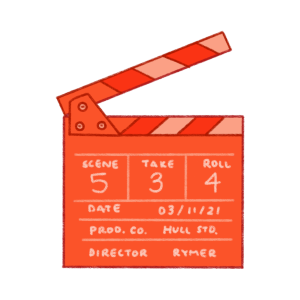OPINION | Coordinate major system is outdated, impractical
Gabe Darley is a computer science coordinate major.
At a school like Tulane, academic majors and minors are often worn like badges of honor, proud indicators of one’s passions. Yet, for some students, the academic program about which they are most passionate will not even appear on their diploma. This is the coordinate major system, a set of interdisciplinary programs which an undergraduate can tack on to their path of study. The departments which hold the coordinate designation are some of the most cherished by Tulane students, but the system under which they operate seems at times completely contradictory and in need of serious re-evaluation.
of one’s passions. Yet, for some students, the academic program about which they are most passionate will not even appear on their diploma. This is the coordinate major system, a set of interdisciplinary programs which an undergraduate can tack on to their path of study. The departments which hold the coordinate designation are some of the most cherished by Tulane students, but the system under which they operate seems at times completely contradictory and in need of serious re-evaluation.
By definition, a student’s coordinate major is “an additional major designed to complement the primary one.” In a 2015 interview with Anastasia Kurdia, a senior professor of practice in the computer science department, she says “the word ‘coordinate’ is there to reflect the interdisciplinary nature of the program.” Students from different schools and programs are welcome to complete the computer science sequence under the coordinate designation.
To better understand these perceived ‘benefits’ to the student, one can start with the distinction between ‘primary’ and ‘coordinate.’ It might be logical to assume that the difference between these two is course load. This is not the case. The computer science coordinate major requires a total of 30 credit hours to complete. Compared to other coordinate programs, digital media practices asks 30 to 32 credit hours, social policy and practice requires 30 credit hours, and Portugese also requires 30 credit hours. While these might be on the lower side of credit counts in terms of majors, they certainly rival their more established ‘primary’ major counterparts, including Asian studies, history, economics, and management which require 30 credit hours, and classics which requires 27 to 30 credit hours.
 Why then is the coordinate major so helpful in achieving the dream of an interdisciplinary education? Perhaps it is the flexibility to major and minor across schools. But this cannot be the case either, because this idea is already built into every department. The Newcomb-Tulane College homepage proudly advertises the “flexibility and freedom to personalize your education across all 75 majors and 67 minors … even double major across schools.” This option is not exclusive to the coordinate system.
Why then is the coordinate major so helpful in achieving the dream of an interdisciplinary education? Perhaps it is the flexibility to major and minor across schools. But this cannot be the case either, because this idea is already built into every department. The Newcomb-Tulane College homepage proudly advertises the “flexibility and freedom to personalize your education across all 75 majors and 67 minors … even double major across schools.” This option is not exclusive to the coordinate system.
So, why would a student invest in this system? Well, for some, this is the only option. Tulane boasts the idea that it is “uniquely suited to serve undecided students,” encouraging students unsure of their interests to explore academic sectors before choosing something to pursue. This method only works, unfortunately, should that something not be computer programming or Portugese. If you land on one of those, congratulations. But, the university would ask that you please restart the self-exploration process and pick something entirely new.
Altogether, the programs often have a hard time meeting the needs of students and making their time feel well-spent. Junior Paige Noland, a former cognitive studies coordinate major, says that despite the program’s interesting subject matter, she ultimately left it behind in part due to the fact that “there were few class offerings, and some were only offered at one time once a year. This made it hard to maintain the major and fit it into my schedule.”
Senior Daisy Rymer, a digital media and practices coordinate major, agrees and adds that often students feel “forced to complete a major in something that they will not pursue later on” just for the sake of  fulfilling the university’s ‘primary major’ requirement. She adds that her program is “always strained for resources and equipment” due to a lack of adequate funding. Obviously, there are problems with the system beyond the semantics of the ‘coordinate’ definition.
fulfilling the university’s ‘primary major’ requirement. She adds that her program is “always strained for resources and equipment” due to a lack of adequate funding. Obviously, there are problems with the system beyond the semantics of the ‘coordinate’ definition.
The idea here is not to say that the coordinate programs should be dissociated. For many students, these programs suffice. Practical and demonstrative knowledge is enough for their postgraduate plans. But, if Tulane cares so much about undergraduates’ ability to explore whatever academic path they choose, they should work to at least provide the option of a full-blown Bachelor’s degree for every student.
If it is a matter of too few course offerings, the administration should hire more professors. If the problem is accreditation, make a committee and prioritize that process. As much as this might seem an oversimplification, the university offers over 50 certified majors. Why are they dragging their feet on the other six?
Art by Gabe Darley, Senior Staff Artist.
Your donation will support the student journalists of Tulane University. Your contribution will allow us to purchase equipment and cover our annual website hosting costs.


